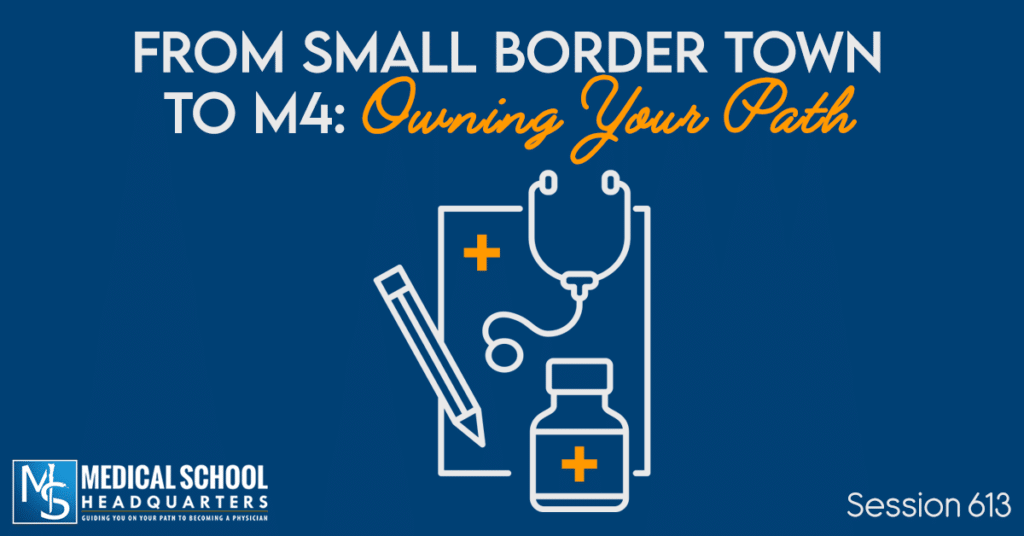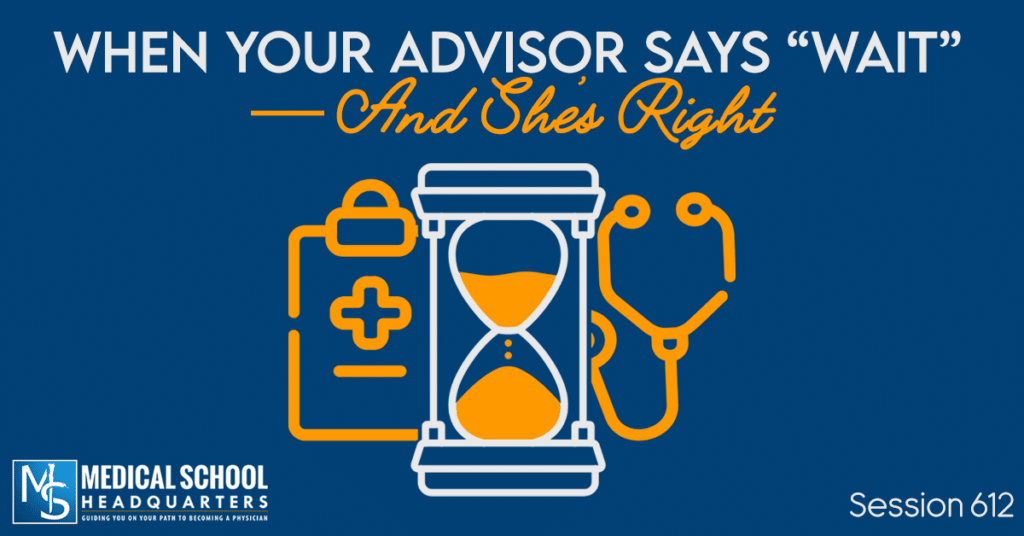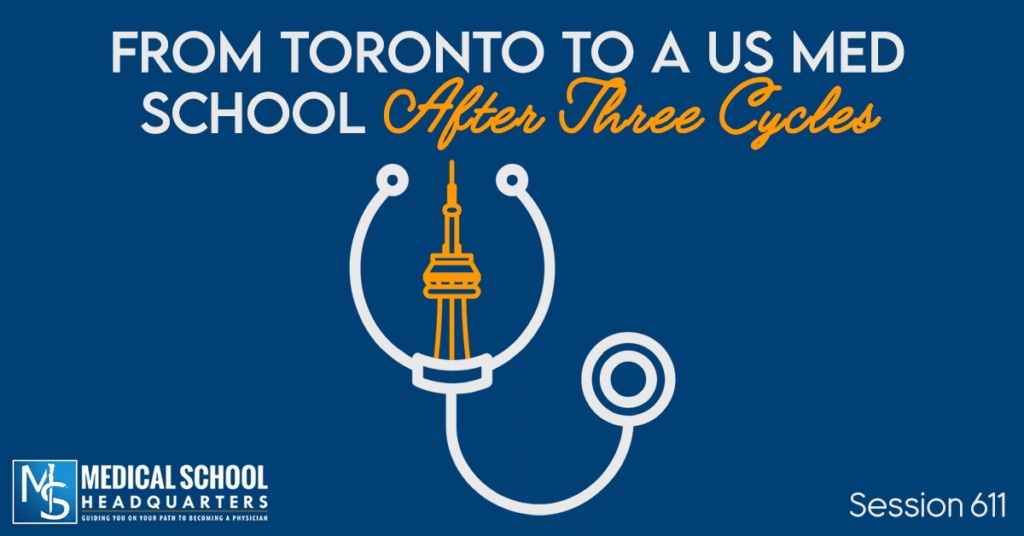As a premed, it’s easy to become obsessed with your grades. You should aim to do as well as possible in your classes, but grades aren’t all you should think about. To apply to medical school and become a physician, you will need to gain experiences that will help you grow. Believe it or not, medical schools are looking for more than straight-A students.
Many of the episodes of Application Renovation show this as I look at the applications of students with 4.0s and near-perfect MCAT scores who didn’t get into medical school. On the other hand, our Mission: Accepted videos show that it’s your story and who you are that matters. They’re looking for well-rounded people who can contribute to their school’s mission, whether that mission is service, research, or meeting the needs of underserved populations.
The journey to becoming this sort of person and applicant will last the entirety of your undergraduate career. Ideally, you will spend your entire life looking for opportunities to grow and learn. Approaching your activities with this attitude will help you view them as opportunities rather than obligations or as a checklist to be completed.
What Qualities Do Medical Schools Want You to Demonstrate?
You might think, “If medical schools don’t just want perfect grades, what do they want?” Luckily, the American Association of Medical Colleges (AAMC) has published a series of Core Competencies that medical school applicants and students should aim to have. There are 15 qualities described, and you might not have demonstrated all of them by the time you apply to medical school, and that’s okay. This is not a do-or-die list. It’s a set of guidelines that can help you reflect on your personal qualities and can help guide what activities you should choose to pursue. Dr. Scott Wright, VP of Advising at Mappd, also did a series of videos on the personal qualities you should try to develop within yourself. You can begin that series here.
Which Activities Matter?
Clinical Experience
One of the most important things you can do as a premed is getting clinical experience. Without clinical experience, how do you know you enjoy caring for people and want to spend your life doing it? It’s good to get clinical experience early for two reasons. The most important reason to start early is to learn whether you lie clinical work. You don’t want to get far down the premed path before realizing that you don’t want to pursue medicine. The second reason to start early is to show consistency in your activities, have time to grow in your role, and collect a wealth of experiences you can reflect on in your application.
Your two main questions about clinical experience are probably what counts as clinical experience and how to get it. In short, clinical experience is any activity where you are directly involved in a patient’s medical care. This can be a volunteer or paid role in or out of a clinical setting. Focus on the description and the actual tasks of the position over the job title.
Shadowing
Many students focus on shadowing, and it is important, but it is very passive. You don’t gain as much from shadowing as you do from clinical experience, where you can play more of an active role. When you’re shadowing, you’re following the physician throughout their day, and your interaction with the patient is minimal or nonexistent. If you get the chance, shadow multiple types of healthcare workers so you can find the role that’s right for you. Getting firsthand exposure to each gives you good information, and you might be surprised at what excites you the most.
If you’re having trouble finding shadowing or want to get some extra hours in, sign up for our free eShadowing program, where you can shadow both physicians and PAs!
Hobbies and Time with Friends
Your community will be there for you during the good and the bad if you take the time to build a community you can rely on. Become friends with your classmates, premed or not. As we always say here at Medical School HQ, collaboration, not competition, is the key to your success.
Continuing to pursue your hobbies will help remind you that you are a person outside of being premed and a student. Taking time for yourself can also improve your mental health and help prevent burnout.
Community Service/Volunteering
Volunteering can be clinical or nonclinical. Volunteering also broadly means anything you do without getting compensated for it. We like to focus more on community service. Those activities are more likely to show that you are a good fit for a school’s mission and help you become integrated into your community.
Apple Podcasts | Google Podcasts
Find ways to give back to your community and follow your passions. Don’t make the mistake many students make of getting in thousands of hours of community service before trying to squeeze in clinical experience in the last year or so before applying. Balance and consistency are key.
The Importance of Reflection
It’s not just what you do that matters. The key is what you learn from it and how you grow as a person through your experiences. If you keep track of your experiences and what you learn from them, it will be much easier to write about them in your application, especially in your activities descriptions. You may also need these reflections in interviews for jobs or volunteer positions. Reflecting on your experiences can also help you determine your priorities and show you where to focus your attention.
There are many ways to track everything you’re doing, from a journal to a spreadsheet or through MappdApp. With MappdApp, you can keep track of both your hours and your journal entries for all of your activities.
Your Story is Your Own
How you spend your time should come down to what you value and what will help you grow as a person. You are more than a set of numbers, whether those numbers are your grades or hours spent in the hospital. If you see yourself that way, it will be easier for medical schools to see you that way. Be true to yourself, and you will find the best fit and right path for you.







